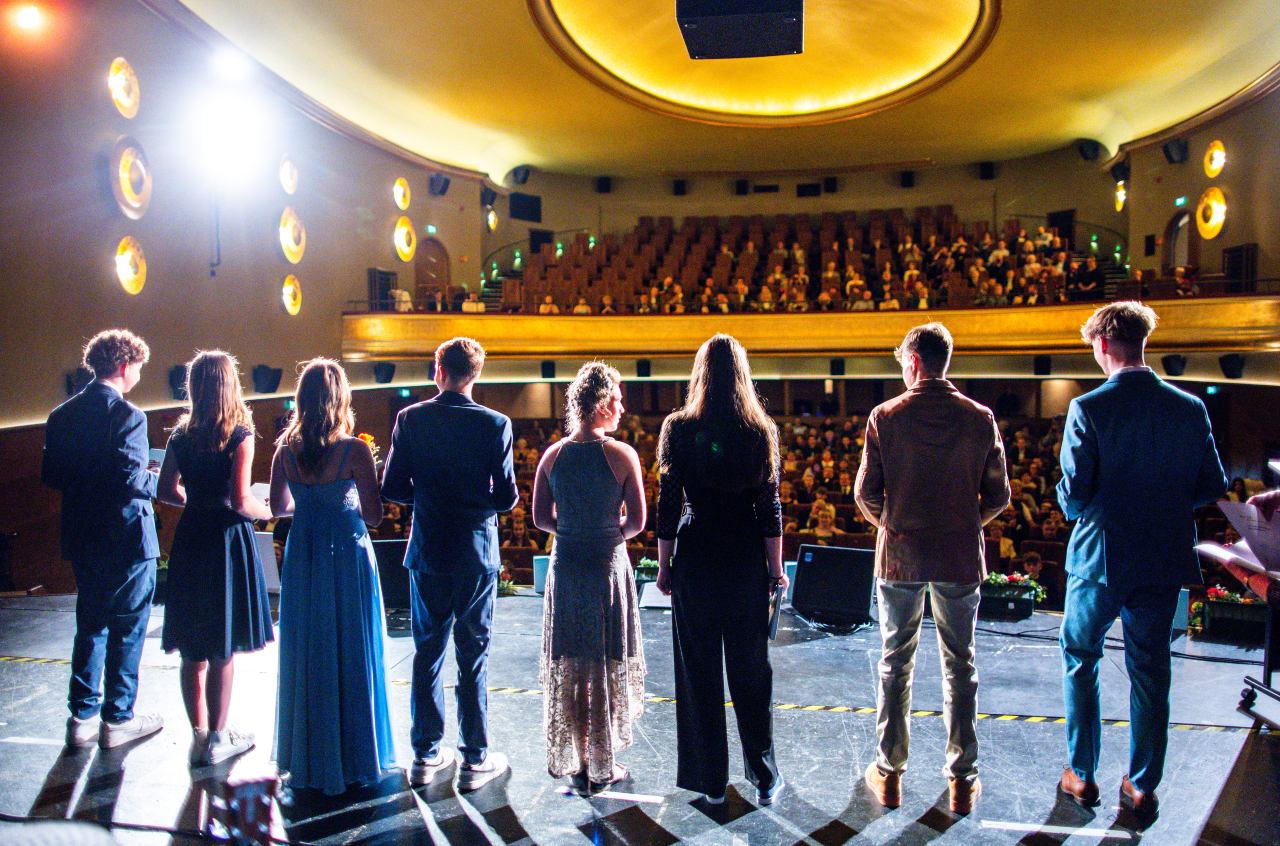Why do I need to know Jugendweihe?
Whether you're interested in German history, live in one of the eastern states or simply want to understand German culture better, die Jugendweihe is a tradition with a long and fascinating past.
This custom tends to happen on weekends in April and May, so you're also likely to hear about it around this time of year.
What does it mean?
Die Jugendweihe (pronounced like this) is a word comprised of two parts: der Jugend, meaning "youth", and die Weihe, meaning "consecration".
The practice originated in humanist circles in the 1850s as free thinkers sought a secular alternative to religious rites of passage like confirmation. The tradition is a coming-of-age ritual for German youth, marking their journey into adulthood.
READ ALSO: German word of the day - Umschulung
For several decades after its foundation, the Jugendweihe remained a relatively fringe practice among non-religious liberals and intellectuals. It was banned under the Nazis, but later regained prominence in the GDR when it was co-opted as a means of spreading state ideology.
Surprisingly, the practice still remains popular in eastern states more than three decades after reunification - but the Jugendweihe of today looks a little different from its socialist predecessor.
How have the ceremonies changed since GDR times?
Starting in 1954, the GDR re-introduced and institutionalised the Jugendweihe as a rite of passage for 14 year olds. Like almost all state-run events in the former East, these ceremonies were partly used as means of promoting socialist propaganda and moulding the country's populace.
During the GDR years, the Jugendweihe involved speeches touting socialist values, gifts of educational and ideological books and oaths of loyalty to the state, as well as celebrations with friends and family. Ultimately, the ceremony was as much a transition into life as a fully fledged socialist citizen as it was a coming-of-age ritual.
READ ALSO: How does Germany's 'phantom border' still divide the country?
These days, the public celebrations remain, but they have become much more divorced from any government ideology. During the spring months, 14 year olds in states like Mecklenburg Western-Pomerania and Thuringia will gather in formal dresses and suits to take part in the Jugendweihe along with their classmates.

The celebrations take place while pupils are in the eighth grade, preparing to enter the final years of secondary education.
There'll be music, speeches and recognition of special achievements, as well as the ceremonial distribution of Jugendweihe Urkunde - or youth confirmation certificates.
In some cases, workshops and seminars on topics like social responsibility or picking a career are offered to youngsters in the run-up to their big day, helping to prepare them for the trappings of adulthood.
Parties and gift-giving is also par for the course in a modern Jugendweihe, making it a little similar to the American 'sweet sixteen'.
Use it like this:
Die Jugendweihe ist ein bedeutender Meilenstein im Leben vieler Jugendlicher in Ostdeutschland.
The 'Jugendweihe' is an important milestone in the lives of many young people in eastern Germany.
Meine Nichte hat nächste Woche ihre Jugendweihe – wir planen eine große Feier danach!
My niece has her coming-of-age ceremony next week – we're planning a big celebration afterwards!

Comments